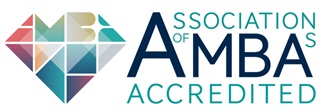A selection of frequently asked questions about the Cranfield Executive DBA programme are answered in this section.
1. What is the difference between the Executive DBA and the Cranfield PhD?
The essential difference between the PhD and the Executive DBA is the content and purpose of the degrees, which are linked to career aspirations. The Cranfield PhD is aimed at professional researchers and is delivered in both part-time and full-time formats to accommodate those entering or transitioning into academic careers.
The Executive DBA is directed at those who want to maintain a career in practice (researching professionals) located anywhere in the world and is delivered in a structured, part-time format to permit doctoral study while maintaining careers. Researchers make a contribution to knowledge in the context of practice: contribution to practice is a specific requirement of the degree and is emphasised throughout the programme.
2. What is the difference between an MBA and an Executive DBA?
This is the difference between a master’s-level qualification and a doctoral-level qualification. At master’s level the knowledge needed is already established; the examiners are assessing a student’s ability to absorb and apply this knowledge. For example on an MBA course the knowledge needed to be covered in finance, marketing and HR is already well-defined, and the students’ work can be compared in terms of their ability to understand and apply this existing knowledge.
In the case of a doctorate, the researcher must demonstrate that he or she has created new knowledge. We do not teach management subjects on the Executive DBA as our researchers already hold an MBA (or equivalent) and also have a significant level of managerial experience, meaning they already know a great deal about management.
3. How should I position my Research Proposal?
The Research Proposal should be submitted together with your application, please refer to the Applying section of our website . As this is the first piece of written work a potential lead supervisor will see from you, it is important to demonstrate you have looked carefully into the issue you wish to explore. This should be achieved by outlining what you have read, therefore confirming that you have uncovered an interesting gap in the literature. You then need to clearly highlight how you aim to investigate this gap. This important document is the first stepping-stone to your doctorate and will not only form the foundation at interview, but also for your first presentation, which will be delivered to your lead supervisor and fellow cohort colleagues during the first week.
4. How can I match my research ideas with School of Management faculty?
The Executive DBA candidate brings forward their own management research topic allowing for a match of interests to be investigated. For more information regarding current research strengths within the School of Management, see our Faculty. Also the Cranfield Knowledge Interchange provides another route to information about Faculty expertise. Once you have narrowed down your search and found faculty names with whom you would like to discuss your ideas, we can arrange conversations with appropriate academics allowing you to better develop your Research Proposal. If you need any help to find a prospective lead supervisor contact the Research Office.
5. What is the added value of the Executive DBA?
Our Executive DBA is a flagship programme and the School supports it with leading faculty contributing to both teaching and supervision. As the issues addressed by Executive Doctorate students are real organisational problems, they tend to be cross-functional, requiring inputs from a number of faculty with differing expertise. Each student is appointed a team of two supervisors rather than a single supervisor and a progress review panel including two additional members of Faculty, to ensure that candidates are receiving the most relevant support. Furthermore the structured nature of the Executive DBA provides a clear set of milestones, which enable the candidates to evaluate their progress and ensures that they are maximising their potential.
What particularly distinguishes our Executive DBA is our own well-known strength of a combination of academic rigour with a closeness to practical business issues. Perhaps less well-known is the level of individual attention given to each participant in the programme through a series of structured panels and individual guidance. Taken together, they provide participants with an enviable and possibly unique experience in the world of business education.
The programme also has the added value of a dedicated administrative team who provide support to all Executive DBA researchers from initial enquiry through to final viva voce examination. Whenever you need that vital piece of information or advice, they will respond directly by email or telephone, usually within 24 hours.
The strength of support from other researchers in the cohort is invaluable. A Cohort Leader from our academic community takes specific interest in the researchers’ research, in addition to the Course Director, dedicated Programme Manager and administrative team, Supervisory Team and Research Training Tutors. Excellent support is also available from the Cranfield Libraries, which is essential for international researchers.
6. What benefits can be demonstrated to the organisation?
The structure of our Executive DBA means your organisation will benefit from your research at all stages throughout the doctorate - the practical bias provides the sponsoring company with valuable, effective insights. The research and outputs from each project feed directly back to the organisation. Visit the main Executive DBA page to see how your organisation will benefit.
7. How heavy is the workload?
This is an individual matter and fluctuates during the process of the programme, but in general as well as attending the residential taught weeks, researchers should expect to allocate 15-20 hours per week to their research. As a general rule, the heaviest loading is in the first and last twelve months of the study. Visit the main Executive DBA page to view the programme structure.
8. How are Executive DBA researchers assessed?
Researchers are required to complete seven deliverables which are reviewed by the supervisory team and finally, in Year four the thesis is internally and externally examined at viva voce. The award of Doctor of Business Administration depends wholly on the final examination of the submitted thesis and viva voce.
9. Where do researchers stay during the taught weeks?
During the cohort weeks, Executive Doctorate students benefit from a specially arranged discounted rate at the Cranfield Management Development Centre.
11. If you get behind on the programme, can you transfer to another year?
Yes. In exceptional circumstances researchers are able to suspend their studies, providing that evidence for mitigating circumstances is provided. The flexible structure of the Executive DBA allows us to integrate researchers into an appropriate year so they are all working at the same pace as their cohort colleagues.
12. Is sponsorship available?
There are currently no sponsorships or funding opportunities available for the Executive DBA. In the majority of cases, researchers are sponsored by their own organisations. In exceptional cases, applicants working for non-profit organisations may be granted a discount of fees. Also Cranfield Alumni are offered a discount of 10%.
13. What are the additional costs of taking the Executive DBA?
All travel and accommodation costs are met by the researcher's sponsor or the researcher themselves. Included in the fees are software, access to library databases, refreshments throughout the day, substantial hot and cold buffet lunches and course dinner during the residential weeks. All students are expected to have a laptop computer equipped with internet access. Researchers would expect to spend approximately £300 on textbooks.
14. I do not have an MBA. Would you consider my application?
Applicants with an equivalent master’s-level qualification with significant practical experience will be considered. Applicants with alternative qualifications and extensive managerial experience may also be considered, but would be registered for six years. The degree can be completed within the normal four year period, if the candidate keeps pace with the formal structure of the programme.
15. What is the closing date for applications?
Due to the rigorous application process, we welcome early applications. Although we try to take as many applicants as we can, we do have a finite capacity. The application deadline is 31 July 2018.
16. Can I speak to a current researcher?
Yes, we can put you in touch with researchers who are happy to be contacted by prospective researchers.
17. Is the programme available on a distance learning or on-line basis?
No - the programme structure requires researchers to attend Cranfield four times a year in Year one and four times a year in Year two. Years three to four contain a number of optional workshops focusing on in-depth methodologies, writing, personal development, progress reviews, one half module and the viva. Visit the main Executive DBA page to see the Programme Structure. In addition to the cohort weeks, overall success relies on the continuation of communication which as well as face to face meetings can also be achieved through Skype, Adobe Connect and/or WebEx meetings. An online portal is also available for taught materials and as a medium to communicate with cohort colleagues, but this is not a replacement for researchers attending the taught sessions in person.
18. How many weeks do I have to attend?
The programme contains a minimum of eight residential weeks over the four-years, providing the structure and support to ensure that researchers continue to progress. The first two years comprise of four separate five-day modules focusing on Research Methods. Modules are co-ordinated and delivered at Cranfield School of Management. The research training and researcher development input is structured into weekly blocks enabling working together for a concentrated period.
The third and fourth years contain a number of optional workshops focusing on in-depth methodologies, writing, personal development, progress reviews, one half module and the viva voce. Additional input is tailored to meet individual study requirements. Towards the end of the programme, it is mandatory that you attend a half week for workshops to prepare for writing up and the examination process, and to meet your supervisors.
19. What is the structure of the attendance weeks?
For each week timings are generally 0830hrs Monday to 1800hrs Friday but there are usually two evening events during residential lectures and progress reviews. Progress Review Meetings. Attendance is required each week.
20. What should I expect at the Assessment Day?
Candidates are asked to prepare a ten minute presentation outlining their business issue. An interview panel of faculty discuss the issue with the candidate and make an assessment. Additionally, each applicant undertakes the admission tests, comprising: Critical Thinking and Numerical Reasoning tests and a critique of a Journal Article. Details of the tests are sent prior to interview.
The overall evaluation is made on the strength/depth of the Research Proposal, the candidate has demonstrated aptitude at interview, the test results and our ability to provide appropriate supervision. The total process takes approximately half a day. Outcomes are advised within seven days.
21. What is the English Language requirement?
For English Language standards see the main Executive DBA page (entry requirements section).
22. I cannot come to Cranfield for an interview, is there an alternative?
Video conferencing facilities plus Skype or WebEx are available if there is absolutely no possibility of coming to Cranfield for an interview. The admission tests can also be arranged via the British Council or a local University. However, attendance is much preferred.
23. What is involved at the Cranfield Executive DBA viva voce?
The DBA viva voce is the final, oral examination when researchers are required to present their work before a panel of examiners. The panel comprises of an internal and external examiner who are selected as specialists in the researcher's research area. The researcher's lead supervisor attends and the panel is chaired by a member of faculty. The researcher is awarded the degree of DBA on passing the viva voce or on completion of any required corrections/revisions to the satisfaction of the examiner(s). Successful candidates are conferred at Cranfield's annual Graduation ceremony in June and may then use the title 'Dr'.
24. Who is the owner of the research outputs?
The copyright and other Intellectual Property (IP) rights in relation to the thesis and other work prepared and submitted by the researcher during the course of their studies, is assigned to the University, who will allow unrestricted access once the work has been examined and found to be satisfactory. Publication of the work of researchers shall be encouraged; permission to publish must be obtained from the lead Supervisor(s) or Course Director concerned, and shall not be unreasonably withheld.





